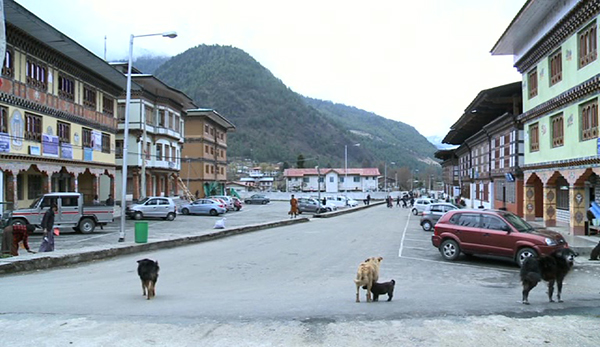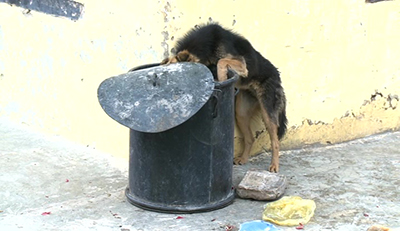 Haa town residents wake up to noisy dog howls and barks every morning. The stray dog nuisance doesn’t end here though. Hundreds of dogs that freely roam Haa town bite people, often in packs.
Haa town residents wake up to noisy dog howls and barks every morning. The stray dog nuisance doesn’t end here though. Hundreds of dogs that freely roam Haa town bite people, often in packs.
“I am pretty sure the number of stray dogs now outnumber the town’s human population,” Sangay Lhadon, an exasperated resident said.
“It’s getting on our nerves. The dogs attack people and domestic animals.”
The dzongkhag is believed to be home to over a thousand dogs including pets.
While the stray dogs pose risk to all, it’s the small school children who are more vulnerable. “In Kar-tshog, mothers can be seen escorting their children to and back from school, carrying sticks in their hands, in fear of being attacked by dogs,” Kaka, another resident said.
Residents say it’s become extremely dangerous to walk alone in the town at night. “When it gets dark, it’s not safe to walk all by yourself because dogs would come in packs and attack you,” Kado added.
The stray dogs also cause other problems. They overturn garbage bins in search of food, littering the town areas.
The Dzongkhag Livestock Office said they have received several complaints from the health officials with regard to rising cases of dog bites. Officials said despite the annual mass sterilization program, the number of stray dogs keeps soaring.
They added with limited manpower, they are not getting the expected support from the general public. “Some of the residents do not show interest in sterilization programs because they think that it is the job of the livestock department,” Loden Jimba, the Deputy Chief of the Dzongkhag Livestock Office said.
“They think the responsibility of catching dogs for sterilization entirely falls on livestock people.”
This issue sparked extensive deliberation at the recent Dzongkhag Tshogdu and led to the house passing a resolution that said every household will have to catch and bring one stray dog each, including their pets, for sterilization.
Failing to do so will attract fines.
The Dzongkhag Livestock Office conducts mass dog sterilization twice a year. Over 500 dogs from different parts of Haa were sterilized last year.










